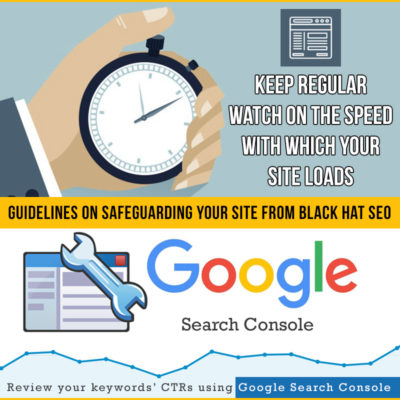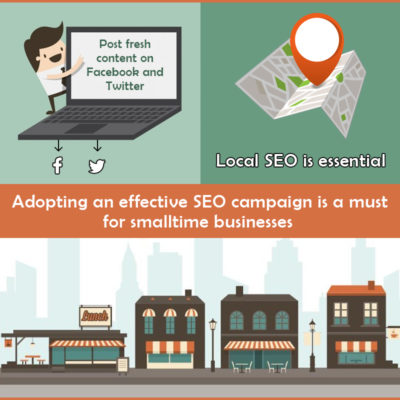 Negative SEO has been discussed animatedly and has been in the news of late. But what exactly is it? And to what extent does it prevail? Are there enough valid reasons to be worried about negative or black hat SEO? In case your website is broken into and hacked using negative SEO techniques, what steps can you take to restore your portal and preempt as well as prevent such malicious attacks in the future?
Negative SEO has been discussed animatedly and has been in the news of late. But what exactly is it? And to what extent does it prevail? Are there enough valid reasons to be worried about negative or black hat SEO? In case your website is broken into and hacked using negative SEO techniques, what steps can you take to restore your portal and preempt as well as prevent such malicious attacks in the future?
This blog takes you through the guidelines you have to follow in order to safeguard your site from the damaging aspects of a SEO strategy. But first let us familiarize you with the common features of a negative SEO campaign.
Defining Negative SEO
Negative SEO usually implies unscrupulous tactics that a hacker or an aggressive competitor of yours resorts to for bringing down your site’s ranking on SERPs or search engine results pages. Negative methods of search engine optimization also referred to as black hat SEO has to do with infiltrating and sabotaging a website by stationing innumerable spam links to the portal. Owing to the harmful impacts of such stratagems, the affected site’s ranking takes a beating and the site eventually loses quality traffic.
Instead of waiting for the hacker or the jealous competitor to bring down your portal, it’d be better on your part to thwart such spiteful attempts much before they cause heavy damage.
1. Keep Regular Watch On The Speed with Which Your Site Loads
The speed with which your portal loads on the browser is a significant ranking parameter. In case, the loading of your site is inordinately delayed on a regular basis, there is good reason to suspect that your site has become a victim of negative SEO. Thereafter, when you take the help of crawling software to detect what you have been suspicious of all along but cannot trace anything but your site loading is delayed, then you can be sure that your site has been.
If you are technically competent, you can weed out the culprits on your own or else you have to fall back on your web hosting service or the webmaster.
2. Carry out Link Audits Routinely
Carrying out link auditing frequently not only contributes towards improving the ranking of your site on Google’s or Yahoo’s SERPs (search engine results pages) but also helps in screening out links to unauthorized portals. If your site is linking to quality backlinks, the graphs and flow charts for ‘backlink progress’ and ‘linking domains’ will have a more or less smooth gradient. But if you espy a steep drop or spike in the slopes, then there is a good possibility that your site has been hacked into. Either conduct an audit manually or take advantage of auditing software app.
3. Weed out Negative Reviews
You could lose quality traffic due to a deluge of negative reviews loaded on your site by a malicious competitor. Find your business listing on Google Maps, select the listing, and click on review summary> reviews, flag the fake negative feedbacks, and complete the report form.
4. Be on the Lookout for Scraped Content
It could happen that your original content is lifted word by word by a hacker and posted on his or her site that gets reviewed by Google before yours. Use a Copyscape software to find out if your content has been plagiarized.
5. Keep a Tab on Click through Rate of Your Keywords
Review your keywords’ CTRs using Google Search Console and if you spot an inordinate spike, report the matter to Google and start disowning the bad links.
6. Keep Checking Your SERP Ranking Once in a While
Although this goes without saying, you need to check your SERP rank routinely just to make sure that your site’s ranking is at least maintained. Make the most of tracking software to check the site’s visibility across the net.
7. Ensure That Your Security Arrangements are updated periodically
Make sure that all your security arrangements are up to date. For instance, ensure that your site is stationed on a server that uses SSL encryption technology.









 In case you own and operate a proprietorship firm or have just established a startup, you might be very guarded and circumspect investing your scarce financial resources. So, you may consider allocating resources for
In case you own and operate a proprietorship firm or have just established a startup, you might be very guarded and circumspect investing your scarce financial resources. So, you may consider allocating resources for